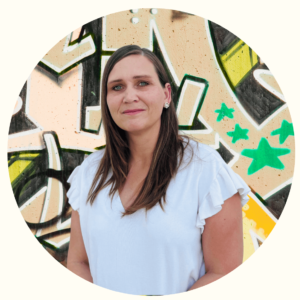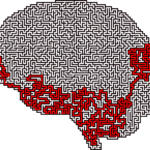The Method To Use For Healing Type 1 Diabetes

Summary: This article considers the method of self-experimentation. Self-Experimentation is defined and its history is explored. Consideration is then given to using self-experimentation for healing Type 1 Diabetes and its potential challenges.
I now find myself in a place that I never expected to be in… Where I am prepared to take risks, and be taking risks of the calculated variety, to heal my own Type 1 Diabetes. This puts me squarely in the field of self-experimentation.
What Is Self-Experimentation?
Self-experimentation is single-subject research, also known as n = 1 experiments (since the number of participants in the experiment is one). In these experiments, the researcher and participant are most often the same person, testing their hypotheses on themselves. It is often thought that self-experimenters are rogues, ‘members of a lunatic-fringe of science’ [1]. However, self-experimentation has a richly-documented medical history that has provided a plethora of Nobel prizes and significant advances in many fields of science [2]. It has been used most often in the fields of medicine and psychology.
A Brief History of Self-Experimentation
Self-experimentation has been employed in research since its inception. Self-experimentation is often used to avoid the need for ethical approval necessary to conduct research experiments on humans.
Ethical regulation for human experiments can be traced back to the Nuremberg Code. The Nuremberg Code was the first code of law and ethics to be established for human experiments. Its development was a reaction to the horrific medical experiments undertaken on humans by Nazis in concentration camps [3].
Specific reference to self-experimentation is referenced in article 5 of the Nuremberg Code:
‘No experiment should be conducted if there is an a priori reason to believe that death or disabling injury will occur, except, perhaps, in experiments where the experimental physicians also serve as subjects’.
This permit for self-experimentation has, over the years, yielded breakthrough findings and medical advances in numerous specialties of medicine, including: yellow fever, leukaemia, cancer, rabies, HIV vaccines, staphylococcal infection, anaesthesia, typhoid and scurvy [4]. However, not all adventures into self-experimentation have been risk-free, with death, disease and disability resulting from several such experiments [5, 6].
Nobel prizes in the categories of Physiology or Medicine have been achieved several times by self-experimenters.
Barry Marshall, an Australian doctor, was awarded the Nobel prize for Physiology and Medicine in 2005. He believed that a bacteria strain called Helicobacter pylori, was responsible for the development of gastritis and stomach ulcers. Marshall faced derision and disbelief from the medical community when he argued that bacteria could survive in the stomach and produce peptic ulcers. Unable to replicate peptic ulcers in pigs infected with the Helicobacter pylori bacterium, Marshall took it upon himself to swallow a batch of this bacteria strain.
Within a week, he had developed gastritis (the precursor to peptic ulcers) and was suffering the symptoms of nausea, vomiting and halitosis (that’s bad breath to you and me!). He then successfully treated it with a course of antibiotics [7].
Ralph Steinman, MD, having been given a terminal diagnosis of pancreatic cancer, subjected himself to eight different experimental therapies to attempt to increase his 5% chance of living longer than a year. He attributed his unexpected additional four and a half years of life to these experimental procedures. In 2011, Steinman was awarded the Nobel prize for his discovery of the dendritic cell type.
Self-Experimentation In Diabetes Research
Interestingly, self-experimentation also touches the field of diabetes research. Frederick Banting, one of the discoverers of insulin (see my article here for more information), gave himself mustard gas burns when attempting to find ways to treat such burns [8].
Similarly, I see diabetes treatment itself to be a form of self-experimentation. Every day as a diabetic, I have to experiment on myself with insulin dosing, activity levels, emotional responses (stress, anger etc) to attain optimal blood glucose levels. Each day is a new experiment as the physiology of my body and the external demands of my environment fluctuate in their demands and requirements.
A relatively new addition to the self-experimenters in diabetes research are a small community of diabetic patients who have created their own artificial pancreases. Using a security flaw in old Medtronic insulin pumps, hackers have been able to create software that converts the pump into a closed feedback loop system that both monitors blood sugar levels and then inputs calculated insulin doses via the pump [9].
These patients are the latest self-experimenters in diabetes research. However, they have been greeted with disapproval by the FDA and a lack of support from Medtronic.
Limitations of Self-Experimentation
Self-experimentation is obviously not without some limits. The most major of these is generalisability. In other words, just because I make this work for me does not mean it will work for you. This may be particularly true in this field, where I am arguing that the mind has as much of an impact as the body in the healing process. I am obviously undertaking this blog because I believe in what I am doing. Therefore, if my strong belief affects my body (I will be writing on this topic soon) then my healing might not be repeatable for those without belief.
Am I Qualified For Self-Experimentation?
So, it would now appear that I am going to be the ‘1’ in the n = 1 experiments in this blog!!
Am I qualified to take on such a role? I learnt research design and implementation through my degree in Psychology and also through my Masters in Counselling and Psychotherapy. From this training, I know that, in order to be scientifically robust, my research must have a clear hypothesis to start with.
From this hypothesis, I must design a research method that directly answers my hypothesis. Through a robust research design, I then derive results that can be analysed and conclusions drawn. Unfortunately, I don’t think my research will fit neatly into such a paradigm. After all, I am not looking at a thoroughly scientific approach. I am seeking to investigate if diabetes is curable through the body’s own processes and whether these can be activated by means that are not necessarily medical.
In order to not have confounding results, it is really important that I control for extraneous variables. Unfortunately, this is where I may come into issues. If I expand the remit of what can effect the healing of diabetes to include the environment, both of the body and the external environment it finds itself in, and consider Type 1 Diabetes to be a mind-body disorder, then the possible influences on this matrix are vast and, at this moment in time, perhaps even not yet fully known. Therefore, controlling for these does not seem very possible.
Whilst this may make my design for my n=1 experiments flawed, I do not believe these experiments will be any less flawed than those of medicine. Medical studies into Type 1 Diabetes currently only consider it through a medical lens. Thus, inputs from mental and spiritual components are not controlled for in these studies. Therefore, all medical studies are currently flawed.
If someone heals from Type 1 Diabetes, a genetic or bodily cause is sought. Has anyone thought to look for mental, emotional or spiritual components that my have had an impact? Therefore, all medical research into diabetes development and healing is also flawed. Their lens is too narrow.
I don’t intend to be reckless with my self-experimentation. I am a hugely experienced diabetic who has ridden the challenges of diabetes is all weathers and health scenarios for nearly forty years. I bring to the table a wealth of knowledge about my own condition and its peculiarities. This is the foundation from which I will be experimenting. I will not be going in blind.
The only major risk I can see at this point is potential death resulting from abruptly stopping my insulin. I have absolutely no intention of doing this. I anticipate that, as my diabetes starts to heal, I will witness my blood glucose levels decreasing as my pancreas starts producing its own insulin. The risk of hypoglycaemia(s) associated with this increased level of insulin in my body is also not without risk. I therefore need to be vigilant with my blood glucose control during these experiments and respond diligently to fluctuations in my control. This requirement, however, is something that I respond to on a daily basis as part of my diabetes management.
References:



GET HEALINGT1D’S FUTURE ARTICLES IN YOUR INBOX!
Get the latest musings and findings straight to your email inbox.

Natalie is a blogger with Type 1 Diabetes. Natalie's special gifts are questioning the status quo and being a rebel. She is using these gifts to question medical 'knowledge' and find a true cure for Type 1 Diabetes.
Recent Comments:
- Sandra on Nutrition Update
- latestModapks on Daniel Darkes
- Natalie Leader on Daniel Darkes
- Senna on Daniel Darkes
- Sandra on High Blood Pressure




